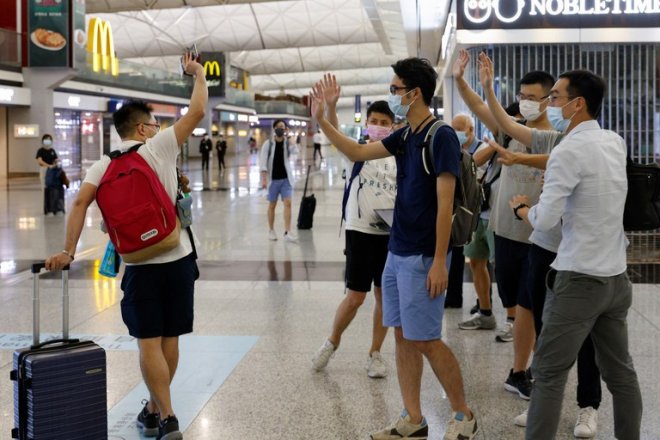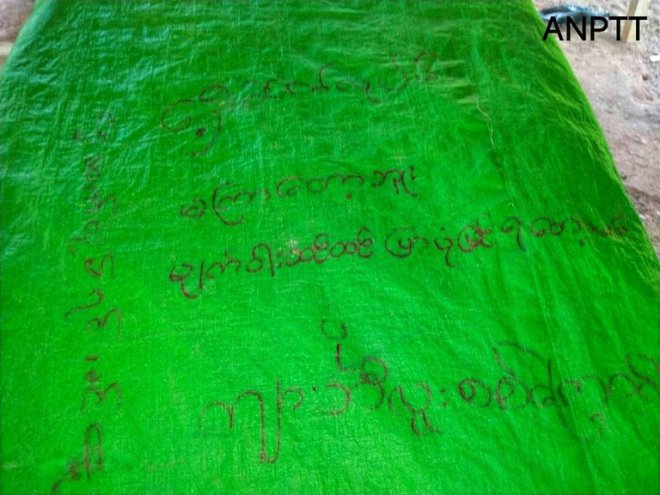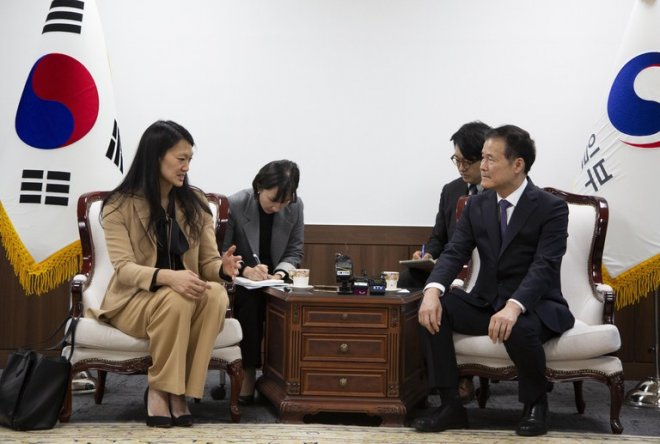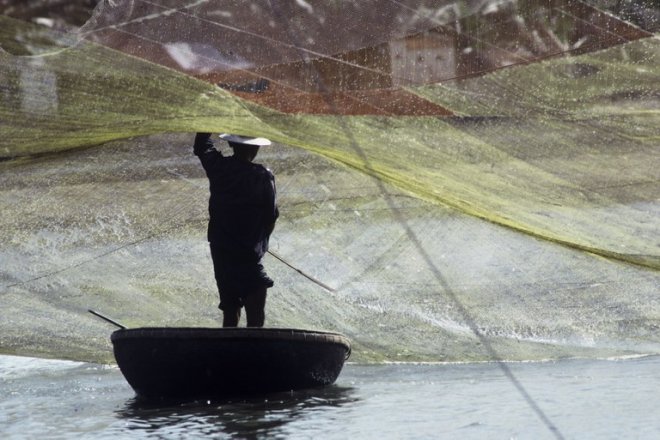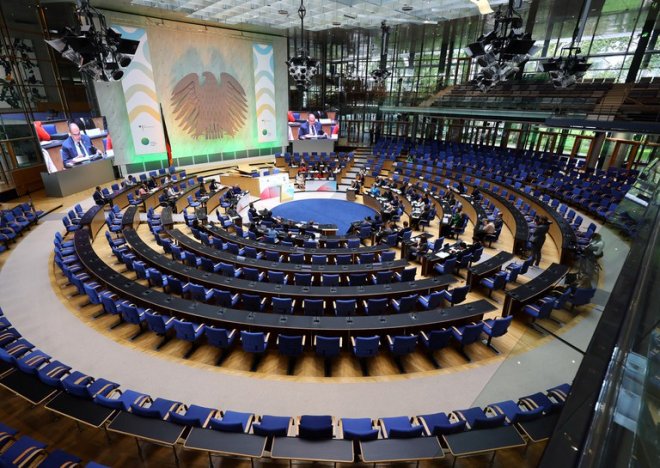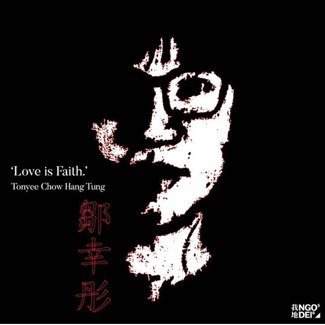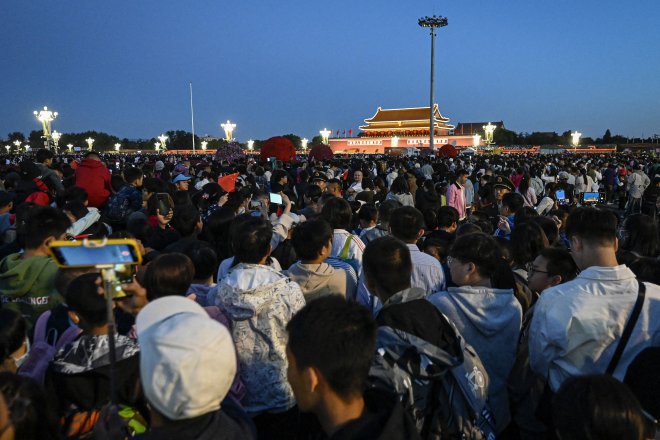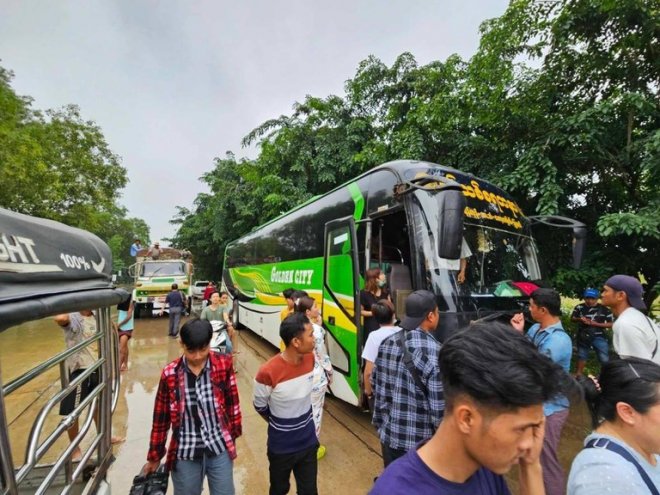With threats and intimidation, China coerces Uyghurs in Turkey to spy on each other
After Yasinjan and his family moved to Istanbul in 2016, the police back home in Xinjiang tried to keep in touch. They wanted to know all about the clientele at the modest barbershop he opened in the Zeytinburnu district, home to a large Uyghur immigrant population.
The police contacted him on his phone. He refused to talk to them. They sent threats through his relatives. He ignored them. They imprisoned his father-in-law. He didn’t budge. Then, this January, the police tried something new: They sent him a customer.
The nervous young Uyghur man was an indiscreet spy. He walked into the shop, took out his phone and started recording. He taped Yasinjan asking him to wait his turn. He taped the other customers in the shop. He went back outside and took shots of the storefront.
“I realized something was wrong, so I called him and said it was his turn,” Yasinjan told Radio Free Asia. “When he came into the barbershop, he confessed everything.”
A police officer in Hotan, in the Xinjiang Uyghur Autonomous Region, had been messaging him, asking him to surveil Yasinjan and other Uyghurs in Istanbul, the man said. He relented when his mother, still in Hotan, started texting him the same requests. And he’d already sent all his footage and notes to the police.
More than six years into China’s campaign to eradicate independent Uyghur society at home, Yasinjan’s experience underscores the lengths to which the Chinese authorities go to keep tabs on ordinary Uyghurs abroad.
The roughly 50,000 Uyghurs in Turkey face unique risks. The country has welcomed waves of Uyghur refugees since the 1950s, under policies supporting ethnic groups with cultural and linguistic ties to Turkey. Now home to the largest Uyghur emigree population outside of Central Asia, Turkey has become a focus for Chinese espionage.
Chinese officials “consider those in exile, just by being abroad, people who they need to keep a very close eye on,” said Maya Wang, associate director of Human Rights Watch’s Asia division.
“The purpose is to tighten control and surveillance and repression of everyone who is from that community, generating a sense of fear, and therefore compliance and loyalty, to the Chinese government, even when you are thousands of kilometers away from Beijing,” she said.
Intimidated to become informants
Several Uyghur expatriates, all over the world, told RFA of recent Chinese attempts to intimidate them into becoming informants. They had all downloaded WeChat or Douyin, the Chinese version of Tiktok, in order to keep in touch with relatives back home.
Officials had then manipulated those digital ties to try to coerce them into spying on their communities abroad. Many of these Uyghurs declined to go on the record, fearing for the safety of relatives still in China.
![]() In this Dec. 4, 2022, photo, members of Uyghur communities set fire to a makeshift Chinese flag during a protest against Chinese authorities" treatment of Uyghur minority in Xinjiang, near the Chinese consulate in Istanbul, Turkey. (AFP Photo/ Yasin Akgul)
In this Dec. 4, 2022, photo, members of Uyghur communities set fire to a makeshift Chinese flag during a protest against Chinese authorities" treatment of Uyghur minority in Xinjiang, near the Chinese consulate in Istanbul, Turkey. (AFP Photo/ Yasin Akgul)
The reluctant spy played WeChat voice messages from the Hotan policeman for the crowd at the barbershop. Yasinjan shared the voice messages, as well as a recording of his conversation with the informant, with RFA.
“Brother, let’s start the job today, start doing the barber immediately, then do Abdul’eziz, that asshole’s thing… there are plenty of things to do,” the policeman said in one voice message, speaking in Uyghur.
The officer paid the informant 500 Turkish lira (US$27) for each piece of information he shared, he told Yasinjan.
It wasn’t clear why Chinese police targeted Yasinjan’s shop. He had participated in Uyghur community protests against the Chinese government, but he wasn’t otherwise politically active. Perhaps the fact that it was a barbershop was enough to gain their attention, he and his wife Hadiche guessed.
Here were Uyghur men, from all over the region, relaxing and socializing. Even if the scene presented no security risk to China, it was still of interest to local Xinjiang officials, who are tasked with collecting data on all individuals with hukou residency registrations tied to their jurisdictions, including former residents living overseas.
“The top-level government gives these orders to tighten control over these communities, and at the lower level, these become some kind of quotas,” said Human Rights Watch’s Wang. “This is how the Chinese bureaucracy works: one layer to the next, exerting pressure to fulfill quotas.”
Undermining trust
Coercing Uyghurs to gather information on each other undermines trust and can dampen social and cultural gatherings, preventing Uyghur refugees from rebuilding their communities abroad.
“Uyghurs can become suspicious of one another and such an erosion of trust takes a toll on the community and frays its social fabric,” Natalie Hall, non-resident fellow at the Oxus Society for Central Asian Affairs, wrote in an email interview.
In a 2021 report, the Uyghur Human Rights Project and the Oxus Society documented 5,530 instances of warnings, threats, and arrest requests directed at Uyghurs abroad, in 22 different countries, over the course of 19 years.
![]() In this March 25, 2021, photo, Uyghurs living in Turkey, display placards during a protest against the visit of China"s Foreign Minister Wang Yi to Turkey. (AP Photo/Emrah Gurel)
In this March 25, 2021, photo, Uyghurs living in Turkey, display placards during a protest against the visit of China"s Foreign Minister Wang Yi to Turkey. (AP Photo/Emrah Gurel)
At his barbershop, Yasinjan agonized over what to do with this informant. Should he report him to the Turkish police? Consulting with his other Uyghur customers, Yasinjan let the man go – after extracting a promise that he would never spy for the Chinese again.
The promise did nothing to assuage Yasinjan’s anxiety, however. His barbershop was still a target for the Chinese police.
His father-in-law, Osman Memet, was still in prison. He had few protections. Turkish law heavily penalizes espionage, but Yasinjan’s barbershop contained no state secrets. And the Turkish government treads carefully around China, given its increasing investments in the region.
Strained political ties
Still, China’s heavy-handed approach to Uyghurs in Turkey has strained the bilateral relationship, Turkish Foreign Minister Mevlut Cavusoglu told journalists in December. “They have extradition requests for people who are our citizens, who live in Turkey year-round, and we don’t grant any of them,” Cavusoglu said.
Short of refusing extradition requests, however, the Turkish government does little to protect its ethnic Uyghur citizens from the Chinese state.
Abdukerim, a Turkish citizen and former resident of Xinjiang’s Qarghiliq, said police in his hometown have been threatening him over the phone ever since he moved to Turkey in 2013. He shared some of the WeChat voice messages with RFA.
“We know what kind of business you are busy with there,” the officer said. “However important your business is, it cannot be more important than your mother.”
“Heaven is at the foot of the mother,” the officer went on, quoting a famous hadith, or saying of the Prophet Muhammad. “Ask about your mother’s well-being, when her situation now is not good.”
When Abdukerim’s mother died in 2020, the police started threatening the rest of Abdukerim’s family back home.
“Death is for everyone, young and old,” the officer said. “Your mother died, and now you may talk to your relatives and ask about their well-being while they are alive. We will make that arrangement for you.”
Abdukerim says these threats, and his isolation from family, have caused him long-term psychological distress.
The penalties for going public with Chinese threats can be even more severe.
Uyghur resident in Turkey Yusupjan Emet told Al Jazeera in 2019 that Chinese agents had coerced him into informing on Turkish Uyghurs by arresting and torturing his mother. They threatened to keep her in custody unless he cooperated.
“I reported on everything people did – what they ate, drank, what they did in private in their homes, whether it was friends or relatives, I shared it all,” he said.
In 2020, Yusupjan was shot twice in the back in Istanbul’s Avcilar District. Two suspects apprehended by Turkish police insisted they had shot him due to personal hatred. The case is still under investigation.
The choices for overseas Uyghurs facing Chinese police intimidation are stark, particularly in countries like Turkey where their status can be precarious. They can seek help from under-resourced authorities who may not understand their plight, or wish to anger China.
They can go to the media, and risk exposing themselves. They can cooperate, breaking the law and undermining their new communities in order to maintain their ties to their home region. Or they can cut off all connections with family.
“I do know a lot of people decided to not contact their families back home for a while,” said Wang, of Human Rights Watch, “with the hope that that pressure to spy is going to lessen over time, when the officials responsible for filling these quotas forget about these people.”
Translated by Nadir and edited by Malcolm Foster.
[圖擷取自網路,如有疑問請私訊]
The police contacted him on his phone. He refused to talk to them. They sent threats through his relatives. He ignored them. They imprisoned his father-in-law. He didn’t budge. Then, this January, the police tried something new: They sent him a customer.
The nervous young Uyghur man was an indiscreet spy. He walked into the shop, took out his phone and started recording. He taped Yasinjan asking him to wait his turn. He taped the other customers in the shop. He went back outside and took shots of the storefront.
“I realized something was wrong, so I called him and said it was his turn,” Yasinjan told Radio Free Asia. “When he came into the barbershop, he confessed everything.”
A police officer in Hotan, in the Xinjiang Uyghur Autonomous Region, had been messaging him, asking him to surveil Yasinjan and other Uyghurs in Istanbul, the man said. He relented when his mother, still in Hotan, started texting him the same requests. And he’d already sent all his footage and notes to the police.
More than six years into China’s campaign to eradicate independent Uyghur society at home, Yasinjan’s experience underscores the lengths to which the Chinese authorities go to keep tabs on ordinary Uyghurs abroad.
The roughly 50,000 Uyghurs in Turkey face unique risks. The country has welcomed waves of Uyghur refugees since the 1950s, under policies supporting ethnic groups with cultural and linguistic ties to Turkey. Now home to the largest Uyghur emigree population outside of Central Asia, Turkey has become a focus for Chinese espionage.
Chinese officials “consider those in exile, just by being abroad, people who they need to keep a very close eye on,” said Maya Wang, associate director of Human Rights Watch’s Asia division.
“The purpose is to tighten control and surveillance and repression of everyone who is from that community, generating a sense of fear, and therefore compliance and loyalty, to the Chinese government, even when you are thousands of kilometers away from Beijing,” she said.
Intimidated to become informants
Several Uyghur expatriates, all over the world, told RFA of recent Chinese attempts to intimidate them into becoming informants. They had all downloaded WeChat or Douyin, the Chinese version of Tiktok, in order to keep in touch with relatives back home.
Officials had then manipulated those digital ties to try to coerce them into spying on their communities abroad. Many of these Uyghurs declined to go on the record, fearing for the safety of relatives still in China.
 In this Dec. 4, 2022, photo, members of Uyghur communities set fire to a makeshift Chinese flag during a protest against Chinese authorities" treatment of Uyghur minority in Xinjiang, near the Chinese consulate in Istanbul, Turkey. (AFP Photo/ Yasin Akgul)
In this Dec. 4, 2022, photo, members of Uyghur communities set fire to a makeshift Chinese flag during a protest against Chinese authorities" treatment of Uyghur minority in Xinjiang, near the Chinese consulate in Istanbul, Turkey. (AFP Photo/ Yasin Akgul)The reluctant spy played WeChat voice messages from the Hotan policeman for the crowd at the barbershop. Yasinjan shared the voice messages, as well as a recording of his conversation with the informant, with RFA.
“Brother, let’s start the job today, start doing the barber immediately, then do Abdul’eziz, that asshole’s thing… there are plenty of things to do,” the policeman said in one voice message, speaking in Uyghur.
The officer paid the informant 500 Turkish lira (US$27) for each piece of information he shared, he told Yasinjan.
It wasn’t clear why Chinese police targeted Yasinjan’s shop. He had participated in Uyghur community protests against the Chinese government, but he wasn’t otherwise politically active. Perhaps the fact that it was a barbershop was enough to gain their attention, he and his wife Hadiche guessed.
Here were Uyghur men, from all over the region, relaxing and socializing. Even if the scene presented no security risk to China, it was still of interest to local Xinjiang officials, who are tasked with collecting data on all individuals with hukou residency registrations tied to their jurisdictions, including former residents living overseas.
“The top-level government gives these orders to tighten control over these communities, and at the lower level, these become some kind of quotas,” said Human Rights Watch’s Wang. “This is how the Chinese bureaucracy works: one layer to the next, exerting pressure to fulfill quotas.”
Undermining trust
Coercing Uyghurs to gather information on each other undermines trust and can dampen social and cultural gatherings, preventing Uyghur refugees from rebuilding their communities abroad.
“Uyghurs can become suspicious of one another and such an erosion of trust takes a toll on the community and frays its social fabric,” Natalie Hall, non-resident fellow at the Oxus Society for Central Asian Affairs, wrote in an email interview.
In a 2021 report, the Uyghur Human Rights Project and the Oxus Society documented 5,530 instances of warnings, threats, and arrest requests directed at Uyghurs abroad, in 22 different countries, over the course of 19 years.
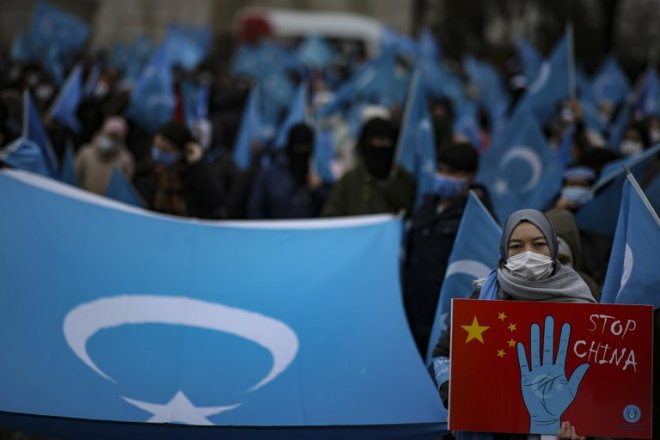 In this March 25, 2021, photo, Uyghurs living in Turkey, display placards during a protest against the visit of China"s Foreign Minister Wang Yi to Turkey. (AP Photo/Emrah Gurel)
In this March 25, 2021, photo, Uyghurs living in Turkey, display placards during a protest against the visit of China"s Foreign Minister Wang Yi to Turkey. (AP Photo/Emrah Gurel)At his barbershop, Yasinjan agonized over what to do with this informant. Should he report him to the Turkish police? Consulting with his other Uyghur customers, Yasinjan let the man go – after extracting a promise that he would never spy for the Chinese again.
The promise did nothing to assuage Yasinjan’s anxiety, however. His barbershop was still a target for the Chinese police.
His father-in-law, Osman Memet, was still in prison. He had few protections. Turkish law heavily penalizes espionage, but Yasinjan’s barbershop contained no state secrets. And the Turkish government treads carefully around China, given its increasing investments in the region.
Strained political ties
Still, China’s heavy-handed approach to Uyghurs in Turkey has strained the bilateral relationship, Turkish Foreign Minister Mevlut Cavusoglu told journalists in December. “They have extradition requests for people who are our citizens, who live in Turkey year-round, and we don’t grant any of them,” Cavusoglu said.
Short of refusing extradition requests, however, the Turkish government does little to protect its ethnic Uyghur citizens from the Chinese state.
Abdukerim, a Turkish citizen and former resident of Xinjiang’s Qarghiliq, said police in his hometown have been threatening him over the phone ever since he moved to Turkey in 2013. He shared some of the WeChat voice messages with RFA.
“We know what kind of business you are busy with there,” the officer said. “However important your business is, it cannot be more important than your mother.”
“Heaven is at the foot of the mother,” the officer went on, quoting a famous hadith, or saying of the Prophet Muhammad. “Ask about your mother’s well-being, when her situation now is not good.”
When Abdukerim’s mother died in 2020, the police started threatening the rest of Abdukerim’s family back home.
“Death is for everyone, young and old,” the officer said. “Your mother died, and now you may talk to your relatives and ask about their well-being while they are alive. We will make that arrangement for you.”
Abdukerim says these threats, and his isolation from family, have caused him long-term psychological distress.
The penalties for going public with Chinese threats can be even more severe.
Uyghur resident in Turkey Yusupjan Emet told Al Jazeera in 2019 that Chinese agents had coerced him into informing on Turkish Uyghurs by arresting and torturing his mother. They threatened to keep her in custody unless he cooperated.
“I reported on everything people did – what they ate, drank, what they did in private in their homes, whether it was friends or relatives, I shared it all,” he said.
In 2020, Yusupjan was shot twice in the back in Istanbul’s Avcilar District. Two suspects apprehended by Turkish police insisted they had shot him due to personal hatred. The case is still under investigation.
The choices for overseas Uyghurs facing Chinese police intimidation are stark, particularly in countries like Turkey where their status can be precarious. They can seek help from under-resourced authorities who may not understand their plight, or wish to anger China.
They can go to the media, and risk exposing themselves. They can cooperate, breaking the law and undermining their new communities in order to maintain their ties to their home region. Or they can cut off all connections with family.
“I do know a lot of people decided to not contact their families back home for a while,” said Wang, of Human Rights Watch, “with the hope that that pressure to spy is going to lessen over time, when the officials responsible for filling these quotas forget about these people.”
Translated by Nadir and edited by Malcolm Foster.
[圖擷取自網路,如有疑問請私訊]
|
本篇 |
不想錯過? 請追蹤FB專頁! |
| 喜歡這篇嗎?快分享吧! |
相關文章
AsianNewsCast









